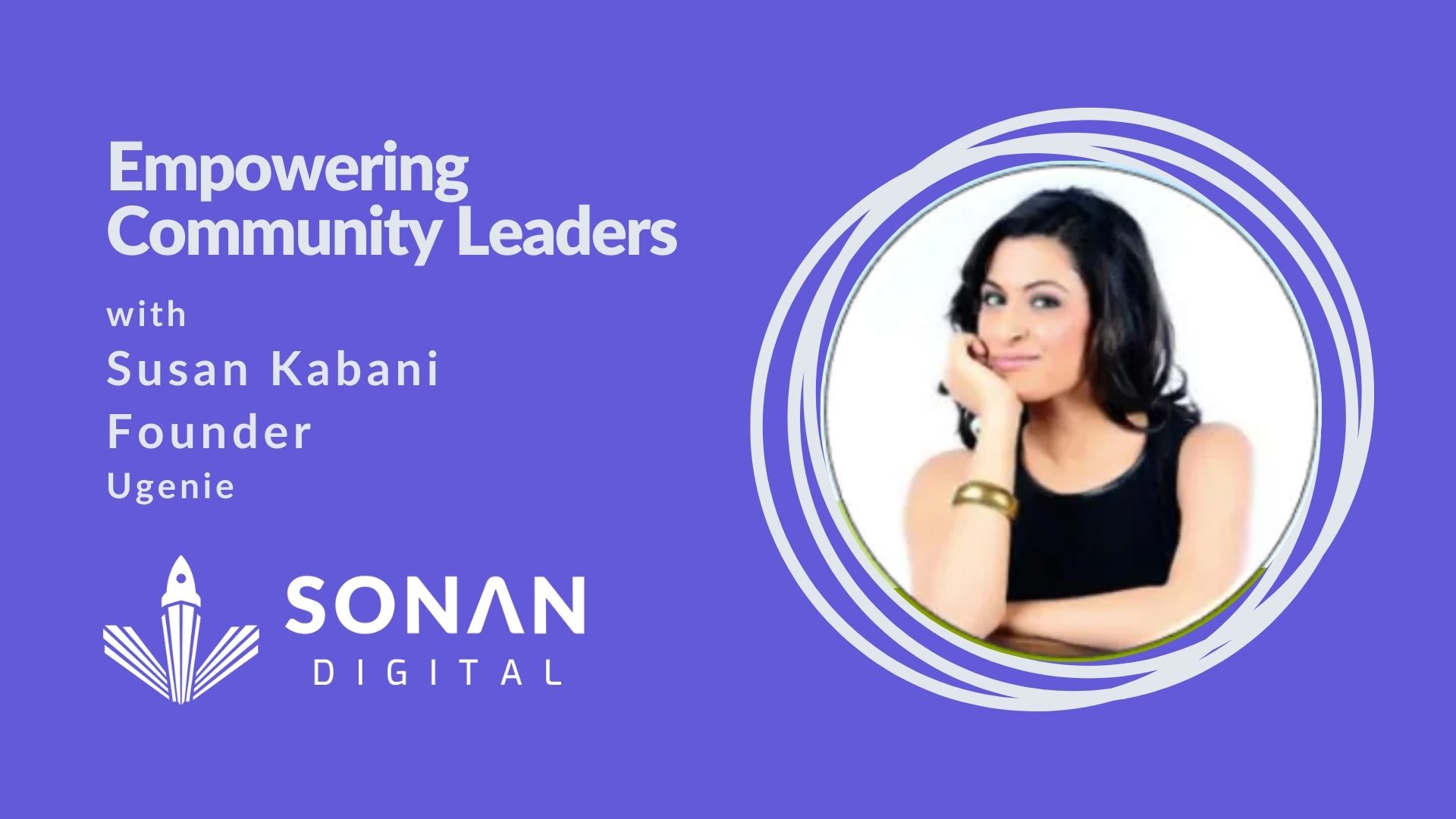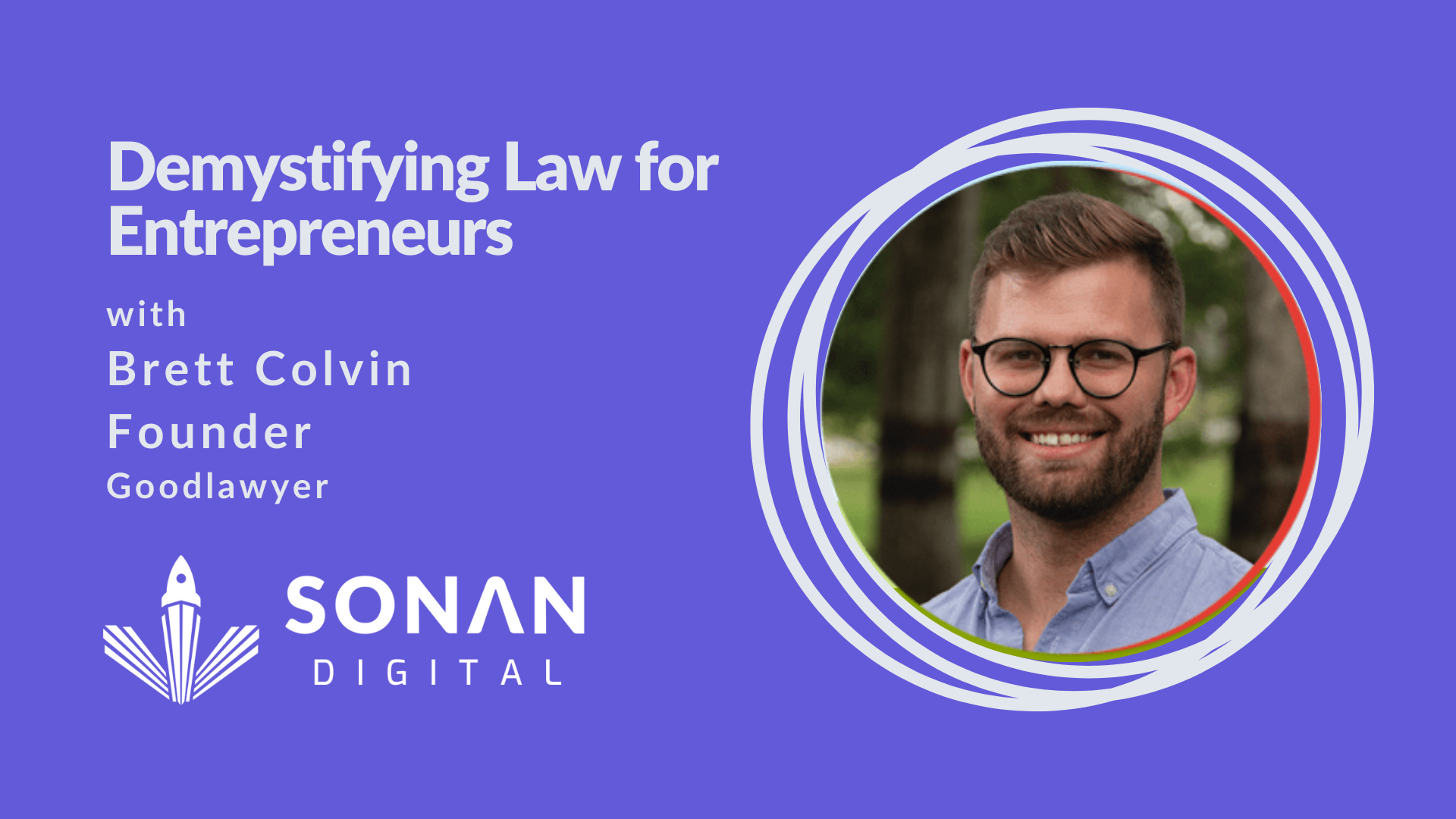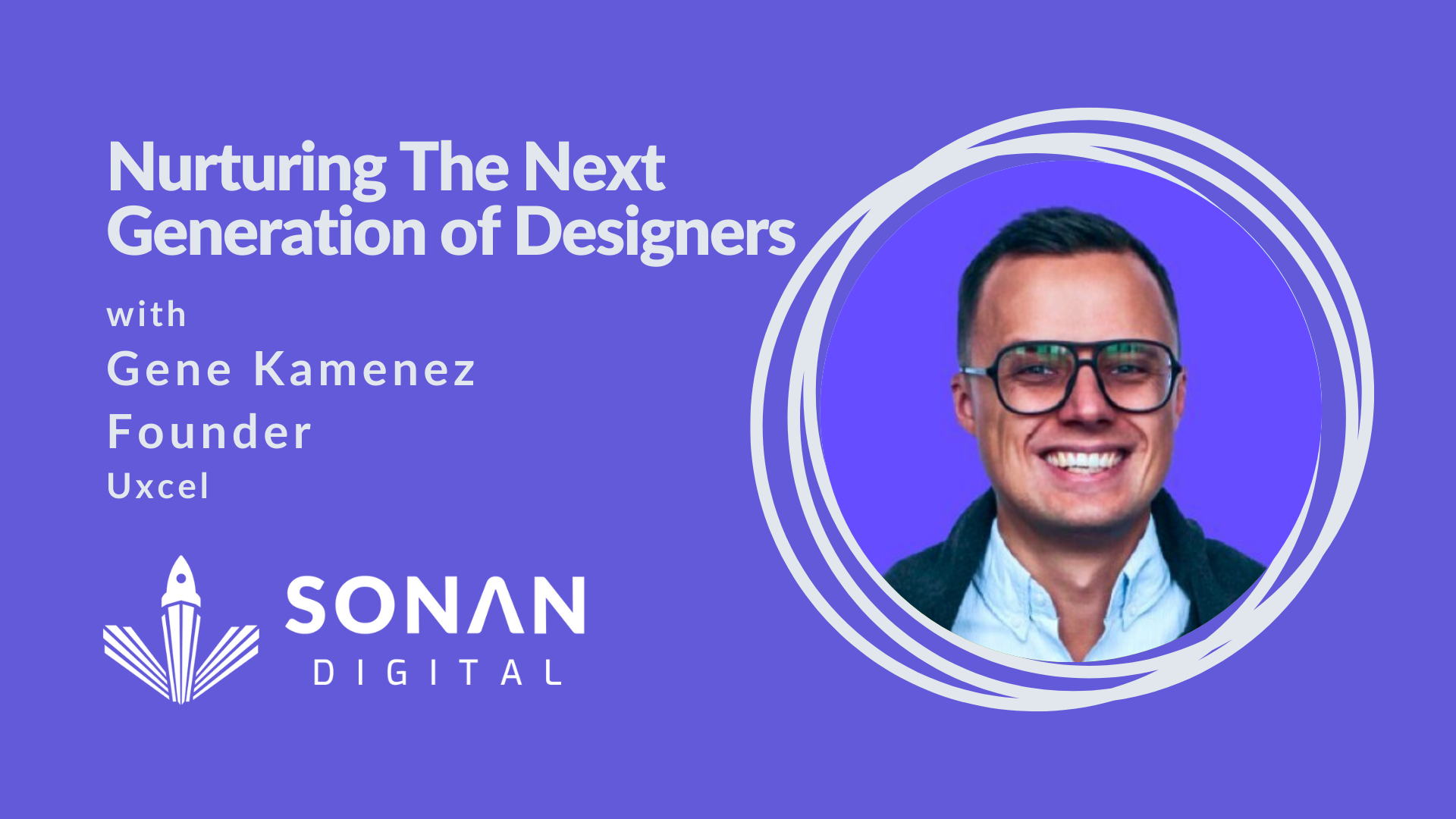In our latest installment of Sonan Insight’s Founder Focus, we had the pleasure of sitting down with Ugenie‘s Founder, Susan Kabani. Susan and her team are aiming to make the world of community building accessible to businesses and organizations of many shapes and sizes. Her platform allows leaders to start building their communities easily through their wide range of solutions ranging from mobile sites, to fully branded mobile app experiences. For the full interview, check out the video below.
Thank you so much for joining us! Our readers would love to know more about your backstory. How did you get started on the path you are on today?
Ugenie started as a way for us to solve a problem. My husband and I were newlyweds, always debating who would be picking up the dry cleaning. We both come from strong religious communities, that’s how we met. In our shared religious community, we saw other members taking care of dry cleaning and thought about how we could create a task sharing app for communities. Working for my family business at the time, I kept thinking about what I wanted to do next. The idea of a community task sharing app kept coming back to me. My husband and I thought it would be a great opportunity. I left the family business and started investing our own funds into building version one of Ugenie. It was very much a B2C task-sharing platform for communities— based on the fight we had in our own marriage.
Since then, we’ve been building out the product. Working with a tech company in the UK, we built the prototype in 6-8 months and focused on discovery. It lacked a proper backend, but it allowed us to get in front of potential users. A lot of our network are strong community people—they didn’t want to collaborate with just neighbours, but other groups in the community. For example, mom’s group, or other certain communities—those bonds were stronger than geography alone. The groups we started speaking to were primarily using Facebook, or other simple tools to organize themselves— leading to a gap in the features they wanted. From there, we realized there was a huge opportunity to work with community leaders instead of members directly.
From there, the idea was validated. At the time, there was also a huge push towards privacy with the Cambridge Analytica scandal and other concerns unfolding. This shift away from Facebook allowed us to start growing quickly.
Furthermore, for our second pivot, we realized we wanted to primarily focus in on businesses looking to launch their communities. They see the potential to drive revenue and retention from these communities, making it a great fit.
At Sonan Digital, we love chatting with founders from across the globe. Can you share where you and your team are currently located?
Much of the front office staff is based in the UK. Our CTO and development team is dispersed across Romania, Russia, and the UK. Primarily Eastern Europe and UK!
It’s a competitive world out there. How are you positioning yourself against competitors?’
Within the community space, we see there being a huge amount of diversity. We’re really striving to provide a great deal of customization on our platform, all the way from our lowest tier to our enterprise plans. We’re aiming to make our system very modular, allowing for easy feature customization depending on exact needs. From learning management, to marketplaces, and offer listings, we’re aiming to provide a great feature set and customization capability.
Our second differentiator is simplicity. A lot of the people we work with aren’t technical administrators. They want an easy setup process, in order to manage their customers and members easily. We also pride ourselves on the human touch, so when people want help in building, organizing, or engaging their communities—we’re there to assist with that.
Where are you seeing success in the organizations that you’re working with?
Small to medium-sized organizations and businesses are our specialties, from professional alliances to chambers of commerce. The specific industries matter less, and our customer base is quite diverse.
The sales team is often considered the backbone of most SaaS companies. How do you structure your sales process currently?
We’re currently seeing lots of success in referrals. That is roughly where 50% of our growth comes from. Our Head of Sales is also a master in LinkedIn— we run targeted campaigns through the channel and over the phone to build these relationships. We also started to test paid inbound advertising last year, where we’ve seen some good success with Google Ads.
What’s the best way to connect with you?
LinkedIn would be the best channel for people to reach out to me. Feel free to connect with me at Susan Kabani.
-1024x320.png)




